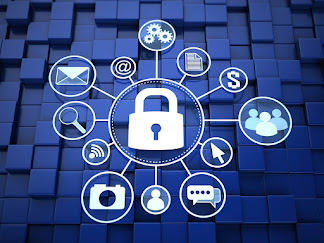DIFFERENT WAYS OF BEING HACKED
Nowadays we all are tied to internet for each and every work we do and similarly few people are always in front of internet to grab your information you put on internet for some bad or illegal work.
This people who take your information without your knowledge
are called hackers. Yes, hacking is an offensive crime and is illegal but
hackers do it irrespective of that.
6 Way of Hacking
1.
Phishing
What is
Phishing?
Phishing is a fake email taking on the appearance of
legitimacy. Hackers make phishing emails through which they mean to steal your
confidential information like passwords and bank account subtleties. This sort
of email seems to have originated from a notable individual or association like
your bank or organization that you work for.
The email may have an attachment and requests that you
download it. When you click on the download catch and open the attachment,
malware gets installed on your system giving the programmer complete access to
your device and data.
How to
Stay Safe?
Reconsider before clicking any links. On the off chance that
you see a connection in a suspicious email message, don't tap on it. Rather,
float your mouse on the connection to check whether the URL coordinates the
connection that was given in the message. Always have an update antivirus software
installed in your device so that
2.
Malware
What is
Malware?
Malware is malicious software that is composed with the aim of
trading off a system and stealing the data accessible on the system. These
programs can play out an assortment of capacities some of which incorporate
stealing or erasing sensitive data, altering the system's center
functionalities, and furtively following the casualty's exercises.
How to
Stay Safe?
1.
Utilize a legitimate antivirus.
2.
Try not to download any fake software as there are
chances it might contain malware.
3.
Never click on fake antivirus pop-ups that are
produced from websites.
4.
Continuously keep your operating system refreshed.
3.
Malicious Mobile Apps
What are
Malicious Mobile Apps?
There is a major confusion that each application accessible on
Google Play store or Apple store is safe and legitimate. A portion of these
apps may contain malicious code that can put your protection in danger.
How Many
Apps Can Steal Your Data?
The malicious apps may contain a code piece that can install
malware on your device. Other than this, the application may request
unnecessary permissions that hackers may abuse to remove basic data including
your contacts, messages and media.
The Most
Effective Method to Stay Safe
Continuously check the permissions before downloading an
application.
Check reviews and ratings.
4.
Smishing
What is
Smishing?
Smishing is a type of phishing in which somebody attempts to
fool you into giving them your private information by means of a phone call or
SMS message. Smishing is turning into a rising and growing threat in the realm
of internet security.
How to
Stay Safe?
Try not to share any basic information over a phone call or
SMS.
Continuously confirm the identity of the message before
clicking links in it.
5.
Physical Security Threats
What are
Physical Security Threats?
A physical threat is any threat to your sensitive information
that outcomes from others having direct physical access to your devices like
workstations, hard drives and mobile devices.
Step by Step
Instructions to Stay Safe
Be cautious about how you store confidential information. Use
encrypted computer hard drives, USBs, and so forth in the event that they
contain sensitive information.
Never compose your passwords on a post-it or notebook.
Never leave your system unattended. Continuously secure it
with a strong password.
6.
Insecure Networks
What are
Insecure Networks?
Connecting your system or device to an insecure network can
make the chance of a programmer accessing all the files on your system and
checking your action on the web. A programmer in charge of your system can
steal passwords of your social accounts, bank accounts and even infuse malware
on genuine websites that you trust.
The Most
Effective Method to Stay Safe
Never connect to open Wi-Fi networks that you can't trust.
Because it's free, it doesn't mean it's safe as well. When in a bistro with a
Wi-Fi office, approach the staff for the Wi-Fi you can connect to rather than
arbitrarily connecting to any open network.




Comments
Post a Comment